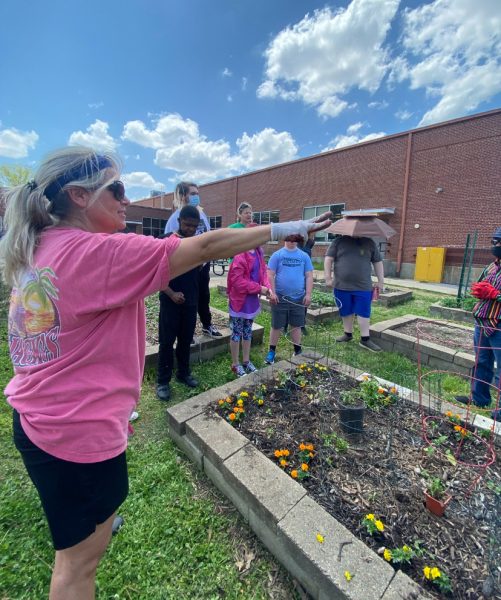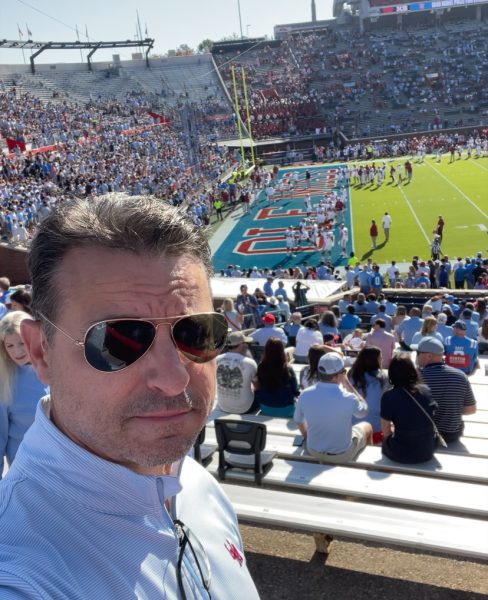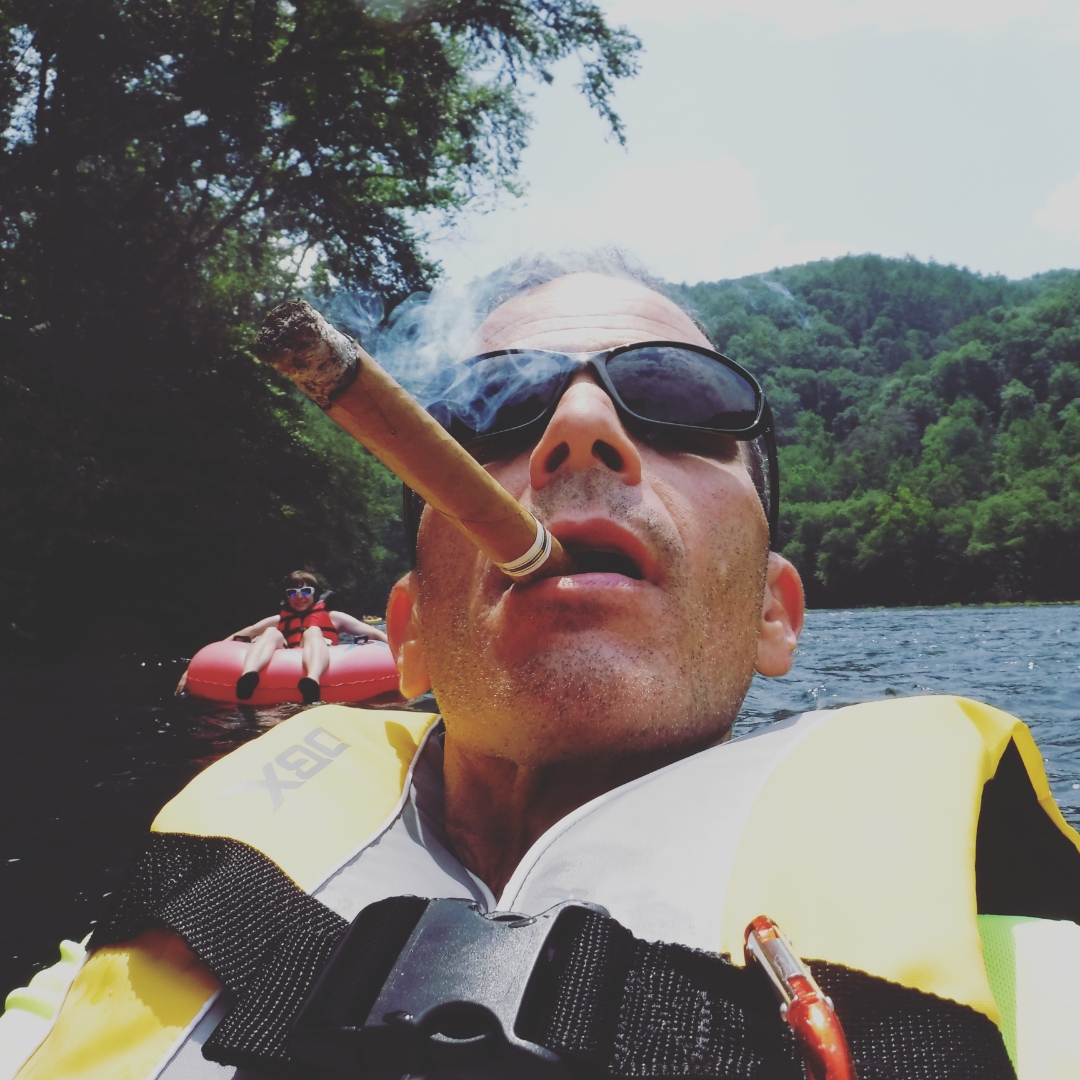You see them nearly every day — teaching, organizing, maybe even getting onto you every once in a while — but not much is known about what brought teachers and administrators to White Station High School (WSHS), and far less is known about where they see themselves in the future. So, once the final bell rings, where will they go?
For some, retirement shines as the ultimate escape; for others, it’s all about the journey WSHS has taken them on; some haven’t planned a step beyond the classroom. Whatever the plan may be, serious or not, some members of the WSHS staff picture themselves as anything and everything; from boat catering businesses to advocating for special needs students, the options are endless.
“Part of me wants to be a funeral home director, shake hands, pass out means and extend a sympathetic look — and wear a suit all the time,” Vice Principal Michael Ayers Jr. said.
Laurie Roberts, an Instructional Resource and Special Education teacher, was not always looking to go to WSHS, or even into teaching. As a nursing major in college, Roberts had a course where she worked with people with disabilities, which led her to change her major and career path. At the start of her career, Roberts worked at a school in Millington, Tennessee, but felt called to leave the comfort of that classroom to go to WSHS, where she has impacted the campus in more ways than one.
“[I was at a funeral] when I saw the church, [and] all of the different types of people … different colors and religions and backgrounds … all in the same building together, singing the prayer of Saint Francis, ” Roberts said. “It came to me that I needed to take this position [at WSHS]. I decided that I couldn’t help my own city if I wasn’t willing to even teach the children that were in my community.”
Upon coming to WSHS, Roberts expanded her role from Special Education to Instructional Resource, where she has been able to reach more students with hands-on instruction. Many of her teaching strategies connect her students with the world around them, and in many cases with the WSHS community garden. Upon taking on the role as a teacher sponsor for Spruce Up Sparta, an environmental and campus beautification club, Roberts has learned a lot about gardening but has also taught students and fellow staff about many Italian recipes that can be made from herbs in the garden.
“I want to become a master gardener,” Roberts said. “[Gardening has] definitely become a huge part of my life … Being more involved in the campus community, especially with things like the Spruce Up Sparta … a team of people coming together to do something good for the campus … has made the special education students more included … [and] has been a true blessing.”

From the classroom to the garden, Roberts has helped plant seeds in the minds of WSHS students and create community through a shared sense of learning and campus improvement. WSHS has helped Roberts have a greater sense of understanding of herself and others, thus preparing her for a future — any future — that comes along.
“I was just sitting here, reflecting on how incredible our school is and how happy I have been lately,” Roberts said. “Things seem to be coming together … I am a better person because of White Station. Three years ago, I was ready to retire … but now, I’m so fulfilled in my job and with the extracurricular activities here that retirement isn’t even on my mind.”
On the other hand, some teachers have had their fair share of WSHS lessons. Some are looking forward to a future where they look at the horizon and WSHS is but a speck in their rearview mirror.
“I’ve been thinking about retiring,” chemistry teacher William Coulter, said. “What do I want to do when I retire? Lots of good stuff … I want to cycle up Mount Vernon, kayak the Grand Canyon, boat down the Amazon, hike the Appalachian Trail, go to Antarctica, run with the Bulls [and] work for the cartel for one day.”
Some retirement plans are less intense than others, but most follow a theme of pursuing a life-long dream or spending one’s time doing activities they didn’t have the time for when working. After years of trying to ‘escape’ the confines of WSHS, Coulter sees retirement as a way to break free from the chains of high school chemistry and finally explore the world as he sees fit.
“I want to see things and do things that I’ve only read about in books,” Coulter said. “I want to enjoy my last couple of years on this face of the Earth doing fun stuff.”
For Ayers, looking toward his future requires him to reflect on a different sort of journey— one that began with a love of music. Ayers’ journey to WSHS was long and winding. A self-proclaimed band geek, he has always had a strong appreciation for music. When in college, his mentors encouraged him to pursue a career as a band director. Ayers found his way to Memphis, specifically to Fairview Junior High School. There, he helped develop a band program before going to Cordova Middle School, where he spent eight years before being encouraged to work in administration for Kate Bond Middle School. After eight years as the assistant principal and an entire career teaching or administering at middle schools, Ayers found himself on the phone with then-recently promoted Principal Carrye Holland who recommended he apply for the then-empty Vice Principal position. He got the job.
“I didn’t call for a job … I was just asking about a recommendation,” Ayers said. “My wife said, ‘I think high school would be good for you,’ so I gave it a shot. I interviewed, and … I can’t imagine doing anything else. It’s just part of who I am now.”
Every year at WSHS has provided Ayers with unique experiences and unique lessons. Beginning his career as Vice Principal during the pandemic and not being able to experience the full force of graduation until his third year allowed Ayers to be drawn into school activities and create partnerships with staff members. From starring as the principal in the musical “Mean Girls,” to collaborating on the “golf-cart video,” with art teacher David Pentecost, Ayers partakes in his fair share of school spirit.
“White Station demands so much of you,” Ayers said. “Few schools can demand as much as this one, and that prepares you for anything … When you’ve got this many people that look to you to be effective, to be organized, to be supportive and encouraging … it prepares you to know that the work is never done.”
Ayers may have no finalized plans of what he wants to do post-WSHS, but he knows he wants to help his community, possibly in government. For now, he wants to continue his work in a way that is fun and rewarding for the students and staff of WSHS.

“[Looking towards your future] kind of makes you think … ‘How did I get here?,’” Ayers said. “I try to stay in the moment and not get caught looking ahead. You’re not guaranteed the future … Today has enough excitement of its own … When I pull into the driveway at the end of the day, I like to feel like, ‘You were gifted another day, and you did some good in the world.’ Bloom where you’re planted; that’s got to be enough.”
No matter the plan, no matter the journey, WSHS is but one stop in a long line of life. No matter where their journeys take them, the staff of WSHS will have the support and love of many students and alumni that have been shaped by their actions, no matter how big or small, of their teachers.
“When you get to be 55 … you tend to value the days, the months and the years,” Ayers said. “I look at other teachers here, some my age or older, who bring great energy, and that’s inspiring [me] to keep at it … I just don’t want to leave anything on the table … we get one fabulous, glorious trip around this life and you got to make it count.”




































